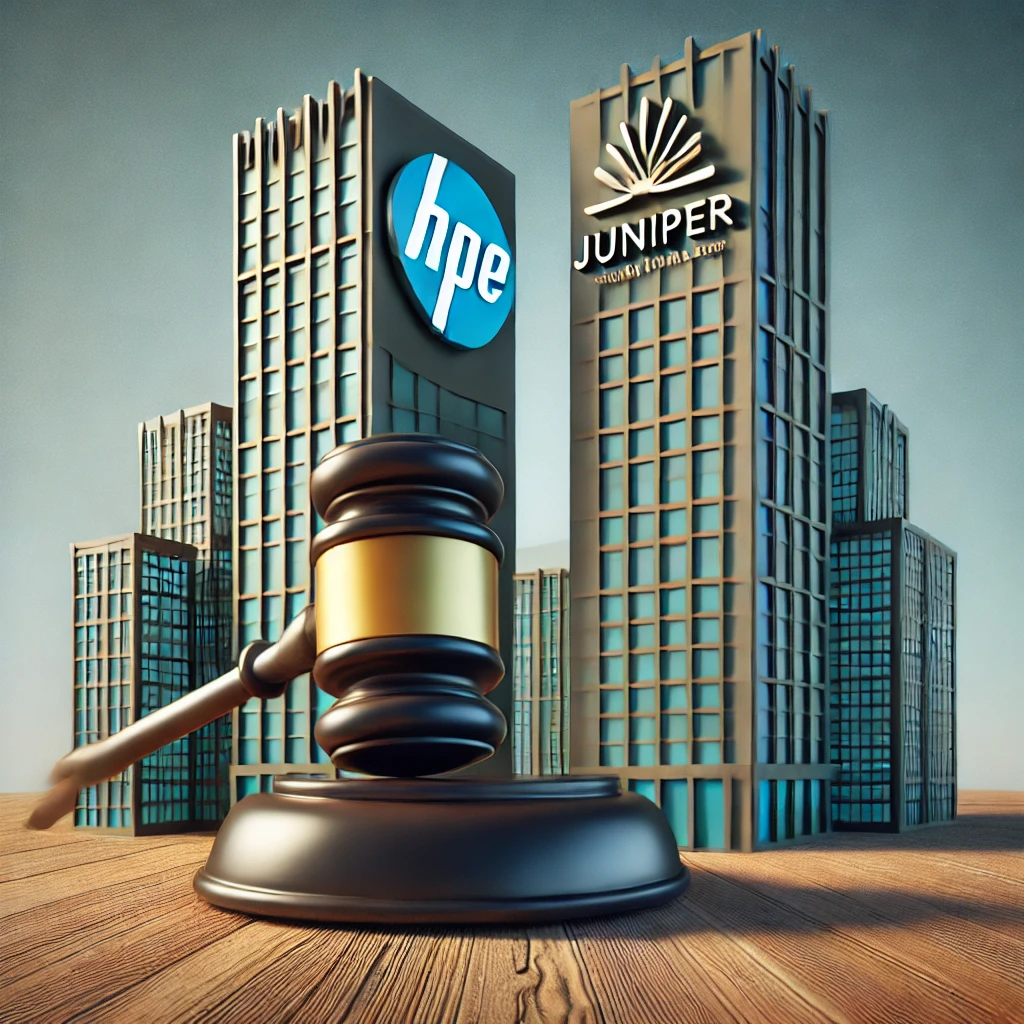DOJ Sues to Block $14B HPE-Juniper Merger
The U.S. Department of Justice (DOJ) has filed a lawsuit seeking to block the proposed $14 billion merger between Hewlett Packard Enterprise (HPE) and Juniper Networks. The DOJ argues that the deal would significantly reduce competition in the networking equipment industry, leading to higher prices and less innovation.
The lawsuit contends that by acquiring Juniper Networks, HPE would gain excessive control over critical network infrastructure technology. The DOJ alleges that this consolidation would stifle competition, potentially harming businesses and government agencies that rely on networking solutions. The case is one of several recent antitrust actions aimed at preventing monopolistic behavior in the tech sector.
Is the Case Strong? The DOJ’s case is supported by concerns over market dominance and reduced competition. Antitrust laws are designed to prevent mergers that create monopolistic conditions, and the government has successfully blocked similar mergers in the past. The agency may argue that allowing the merger would eliminate a key competitor, leaving Cisco as the primary dominant player in the industry.
Additionally, regulatory bodies in other countries may also scrutinize the deal, which could further complicate the merger process. If the DOJ can demonstrate that the merger would lead to less competition, reduced product innovation, or higher costs for consumers, the case against HPE and Juniper could be strong.
On the other hand, HPE and Juniper are expected to argue that the merger will create efficiencies, enhance research and development, and allow them to better compete with larger rivals such as Cisco and Arista Networks. The companies may also highlight that competition remains strong in the networking industry due to the presence of other global players.
Who Should Bear Responsibility? The primary responsibility lies with HPE and Juniper Networks, as they initiated the merger. If the DOJ proves that the merger would lead to an anti-competitive market structure, the companies may be required to offer concessions, such as divestitures of certain business segments, or abandon the merger altogether.
Regulatory agencies, including the DOJ and the Federal Trade Commission (FTC), play a crucial role in ensuring that mergers and acquisitions do not harm market competition. Their responsibility is to enforce antitrust laws and prevent excessive corporate concentration that could negatively impact consumers.
Additionally, industry stakeholders—including customers and competitors—also have a role in voicing concerns about the merger. Businesses that rely on HPE and Juniper products may provide testimony on how reduced competition could affect pricing and service quality.
The DOJ’s lawsuit against the HPE-Juniper merger represents another major effort to regulate corporate consolidation in the technology sector. The outcome of this case could set an important precedent for future tech mergers and acquisitions.
If the government succeeds in blocking the merger, it may signal increased regulatory scrutiny on large-scale mergers, particularly in industries with limited competition. Conversely, if HPE and Juniper successfully argue that the merger enhances competition rather than restricts it, the ruling could encourage further consolidation in the tech industry.
Regardless of the outcome, this case highlights the growing debate over how to balance corporate growth with fair market competition. The decision will shape not only the future of HPE and Juniper Networks but also broader policies on antitrust enforcement in the technology sector.
Tags: antitrust law, DOJ lawsuit, HPE, Juniper Networks, corporate mergers, technology sector, competition law


